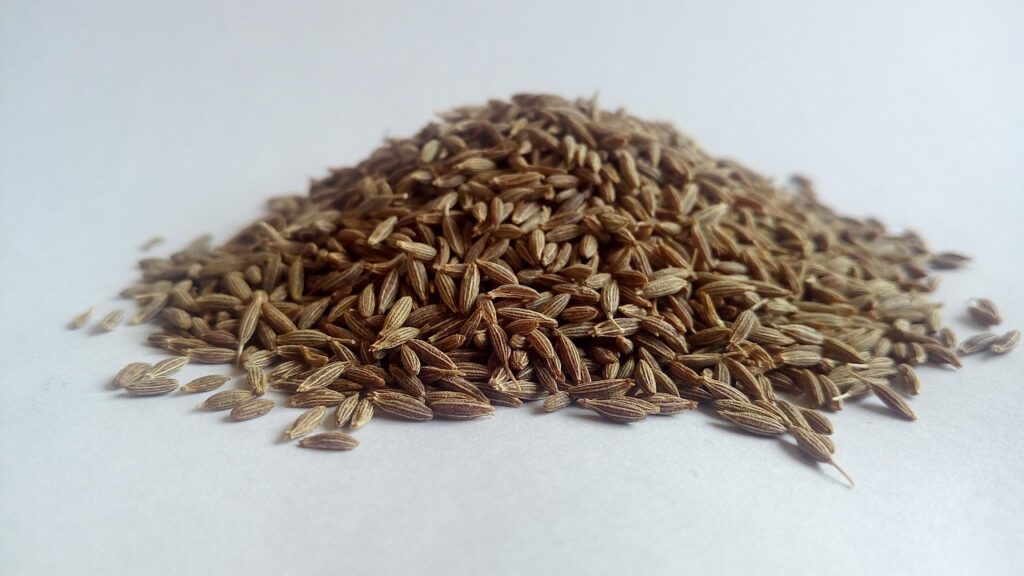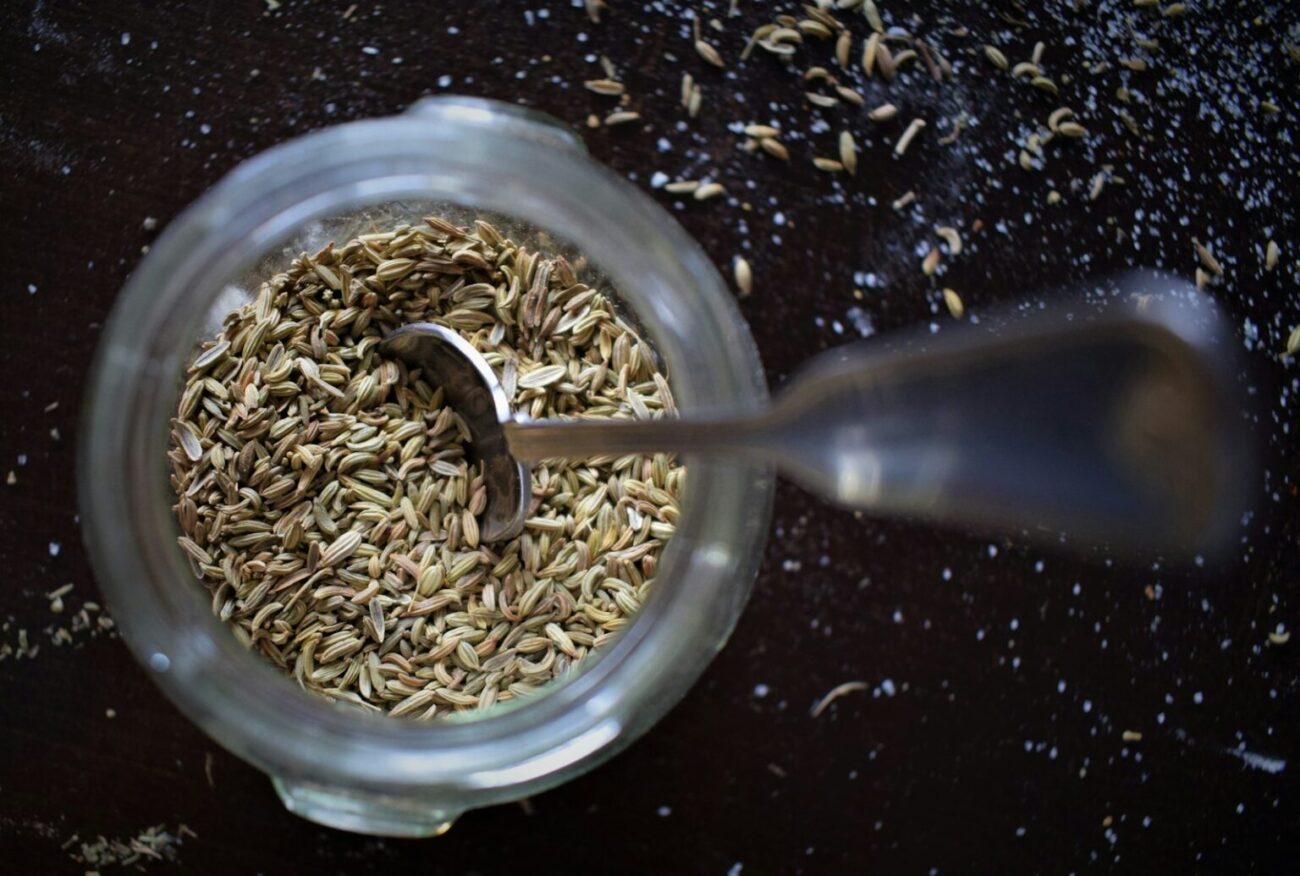Cumin seeds, derived from the Cuminum cyminum plant, have been a staple in culinary and medicinal traditions for thousands of years. These tiny, aromatic seeds are a powerhouse of flavor and nutrition, making them a beloved ingredient in cuisines across the globe, from Indian curries to Mexican tacos. But beyond their culinary appeal, cumin seeds are also celebrated for their impressive health benefits.
In this blog post, we’ll explore the benefits, uses, and potential contraindications of cumin seeds.
Health Benefits of Cumin Seeds
- Rich in Nutrients
Cumin seeds are packed with essential vitamins and minerals, including iron, magnesium, calcium, and vitamins A, C, and E. They are also a good source of antioxidants, which help combat oxidative stress and inflammation in the body. - Aids Digestion
Cumin has long been used as a digestive aid. It stimulates the production of digestive enzymes, which can help alleviate bloating, gas, and indigestion. It’s also known to have carminative properties, meaning it helps expel gas from the intestines. - Boosts Immunity
The antioxidants and antimicrobial properties in cumin seeds can help strengthen the immune system. Regular consumption may help the body fight off infections and illnesses. - Supports Weight Loss
Cumin seeds are often included in weight loss diets due to their ability to boost metabolism and promote fat burning. Studies suggest that cumin can help reduce body fat and improve overall body composition. - Regulates Blood Sugar
Cumin may help stabilize blood sugar levels, making it beneficial for individuals with diabetes or those at risk of developing the condition. Its active compounds improve insulin sensitivity and reduce blood sugar spikes. - Improves Cholesterol Levels
Research indicates that cumin can help lower LDL (bad) cholesterol while increasing HDL (good) cholesterol, contributing to better heart health. - Anti-Cancer Properties
Some studies suggest that cumin seeds contain compounds with anti-cancer properties, particularly in reducing the risk of colon cancer. However, more research is needed in this area.
Culinary and Medicinal Uses of Cumin Seeds
Cumin seeds are incredibly versatile and can be used in a variety of ways:
- Cooking
Cumin seeds are a key ingredient in many spice blends, such as garam masala, curry powder, and taco seasoning. They can be used whole, roasted, or ground to add depth and warmth to dishes like soups, stews, rice, and meats. - Cumin Tea
Steep a teaspoon of cumin seeds in hot water for 5-10 minutes to make a soothing tea. This can aid digestion and provide a calming effect. - Topical Applications
Cumin seed oil is sometimes used in skincare for its antimicrobial and anti-inflammatory properties. It can help treat acne, eczema, and other skin conditions. - Ayurvedic Medicine
In Ayurveda, cumin seeds are used to balance the doshas (body energies) and treat ailments like colds, fevers, and digestive disorders.
Contraindications and Precautions
While cumin seeds are generally safe for most people, there are a few considerations to keep in mind:
- Allergies
Some individuals may be allergic to cumin seeds, experiencing symptoms like itching, swelling, or difficulty breathing. If you suspect an allergy, discontinue use and consult a healthcare professional. - Pregnancy and Breastfeeding
While cumin is often used to aid digestion during pregnancy, excessive consumption may stimulate uterine contractions. Pregnant and breastfeeding women should consult their doctor before using cumin in large amounts. - Bleeding Disorders
Cumin may slow blood clotting, so individuals with bleeding disorders or those taking blood-thinning medications should use it cautiously. - Diabetes
Since cumin can lower blood sugar levels, people with diabetes should monitor their blood sugar closely to avoid hypoglycemia. - Surgery
Due to its potential to affect blood sugar and clotting, it’s advisable to stop using cumin at least two weeks before scheduled surgery.
How to Incorporate Cumin Seeds into Your Diet
- Sprinkle on Dishes: Add roasted cumin seeds to salads, soups, or yogurt for an extra burst of flavor.
- Blend into Smoothies: A pinch of ground cumin can enhance the nutritional profile of your smoothies.
- Use in Baking: Experiment with cumin in bread or cracker recipes for a savory twist.
- Make a Spice Mix: Combine cumin with coriander, turmeric, and chili powder to create your own custom spice blend.

Cumin seeds are more than just a flavorful spice—they’re a nutritional powerhouse with a wide range of health benefits. From aiding digestion to boosting immunity, these tiny seeds have earned their place in both the kitchen and the medicine cabinet. However, as with any natural remedy, it’s important to use cumin seeds mindfully and be aware of potential contraindications.
Whether you’re sprinkling them on your favorite dish or brewing a cup of cumin tea, these seeds are a simple yet effective way to enhance your health and well-being.

